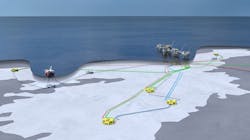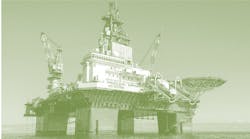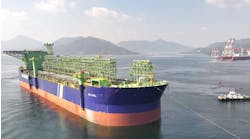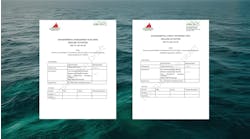Statoil issues LoIs for Johan Sverdrup Phase 2 construction contracts
Offshore staff
STAVANGER, Norway – Statoil has signed two letters of intent (LoI) for construction contracts for the Johan Sverdrup Phase 2 development in the Norwegian North Sea.
Phase 1 is due to start up in late 2019. To promote synergies and continuity of development of the field’s entire life, the Sverdrup partners opted to issue the LoIs now, and full contract awards will follow later this year, pending parliamentary and government approval for Phase 2, which is due to come onstream in 2022.
Aibel’s program covers engineering, procurement, and construction (EPC) of the topsides for the second Johan Sverdrup processing platform (P2) which will increase production capacity on the field from 440,000 to 660,000 b/d. Value of the contract is around NOK8 billion ($1.026 billion).
The main project team will be based at Aibel’s offices in Asker, with the company’s engineering division in Thailand and its yards in Thailand and Haugesund also involved, providing work for a total of 3,500 employees.
Aibel said construction of the P2 process platform would follow the same implementation model the company applied to the Phase 1 drilling platform, and will comprise three modules. The upper process module and converter module will be built in Haugesund and the main support frame in Thailand.
Construction will start in 1Q 2019, with integration of the modules to get under way at Haugesund during 2Q 2021. The finished platform deck, weighing around 23,000 tons, should be delivered to Statoil during the first half of 2022.
The 50-50 Aker Solutions-Kværner joint venture will perform EPC of a new 5,000-metric ton (5,511-ton) utility module for retrofit to the Phase 1 riser platform, field center modifications, and installation and hook-up activities. In this case, the value is NOK3.4 billion ($436 million). This work will start before mid-year and continue into 2022.
Kvaerner will build the riser platform module at Stord in western Norway, involving around 550 personnel at peak. Including spin-off effects for subcontractors and service companies, around 2,000 people should be engaged.
“We are looking forward to working with Aker Solutions in a focused joint venture with a common project management team,” said Elly Bjerknes, Kvaerner’s evp responsible for topsides projects.
“We will execute the new project based on all the improvements we have made in recent years for increased productivity and cost reductions.”
For Phase 1, Kvaerner is responsible for the utility and living quarter platform topsides, the three largest and most complex steel jacket substructures, and offshore hook-up of the riser platform in concert with Aker Solutions.
Aker Solutions was responsible for front-end engineering and design (FEED) for Phase 2, including for the module and work to integrate this with the riser platform, under a 10-year framework engineering agreement awarded in 2013.
“We’ve worked closely with Statoil since the earliest phases of the project to significantly reduce costs and boost the efficiency of this landmark development,” said Aker Solutions CEO Luis Araujo.
The company’s role in Phase 2 will involve more than 450 of its staff in Stavanger, Egersund, and offshore Norway.
Statoil’s current estimate for Phase 2 is less than NOK45 billion ($5.77 billion).
04/05/2018



